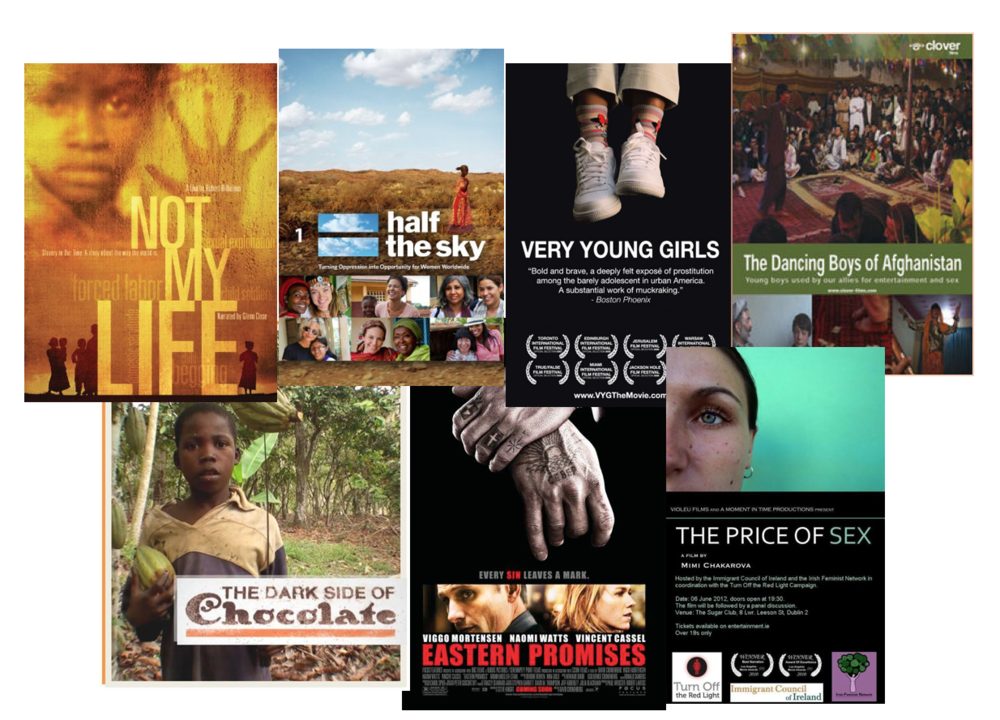A Note on Our New Film Database
We invite you to explore our new film database. It includes dramas, documentaries, news investigations, feature-length, and short films. We hope that these resources prove useful, enlightening, and inspiring.

We chose to include a wide range of resources rather than create a database with films that reflect only Human Trafficking Search’s views. We based this decision on two considerations. First, we are not in a position to view and assess every one of the nearly 200 films included. Second, we did not want to make subjective calls that are the viewers’ prerogative. Therefore, we are asking you, the reader, to view these films with a critical eye. To that end, this post offers a few questions to ask while viewing.
1. Can entertainment and awareness-raising coexist? This database includes dramatic films, like the critically-acclaimed Eastern Promises, and even a few action thrillers, (yes, we included Taken). Do these films raise awareness, or do they provide a distorted perspective of human trafficking for the sake of entertainment?
2. Does the film exploit its subjects? Many of the documentaries included seek to inspire action. This goal requires documentarians to create an emotionally affecting portrait, shocking the viewer into action. Does the documentary do this in a way that does not re-victimize its subjects, either intentionally or unintentionally? Or does the film exploit traumatized people in order to entertain its more privileged audience?
3. Does the film glamorize or condone human trafficking or prostitution? In the mid 00’s after Hustle & Flow won an Academy Award for its song “It’s Hard Out Here for a Pimp,” FBI officials reported that pimps were using widely available movies to teach minors how to be prostitutes. We have included some of those films such as American Pimp, nominated for the 1999 Sundance Film Festival Grand Jury Prize, and HBO’s 1998 documentary Pimps Up, Ho’s Down. We do so with reservations mitigated by the fact that these films are very much in the mainstream and widely available. However, we ask that viewers watch these films with a critical eye as to their portrayal of traffickers and pimps.
4. What is the film’s perspective? The anti-sex trafficking field disagrees on major questions including the effects of legalizing prostitution, the prevalence of violence in prostitution and sex trafficking, whether prostitution is categorically distinct from sex trafficking, and the magnitude of prostitution and sex trafficking. When watching a documentary claiming to be objective, we ask that the viewer consider the documentarian’s politics and how that may be shaping his/her framing of the subject.
We hope that viewers will engage with these films, speak up in the comment section available on each film, listen to opposing viewpoints with a spirit of generosity, and finally, take action to counter human trafficking.
Samantha Thomas (M.A., Security Studies, Georgetown) is a researcher at Human Trafficking Search.
Photo Credit: Firas Nasr
